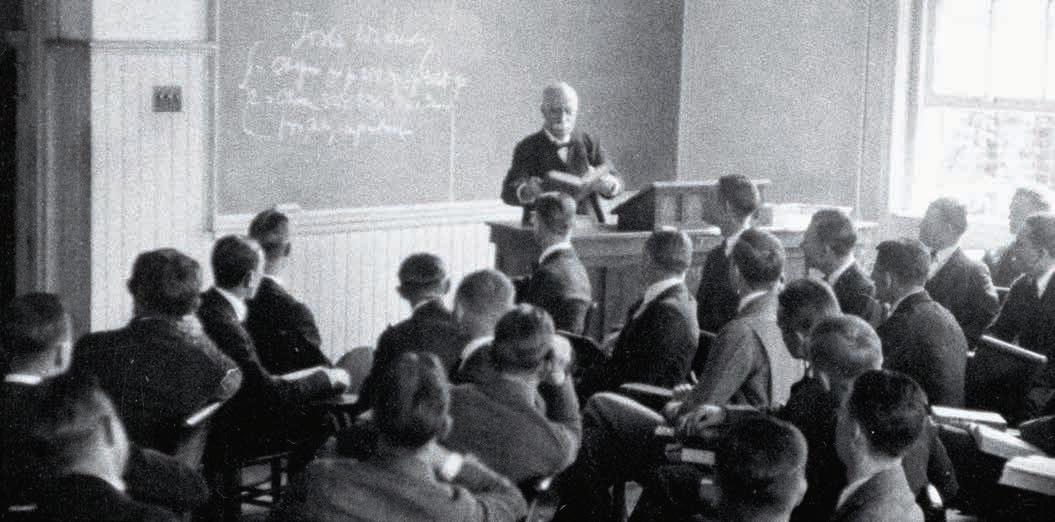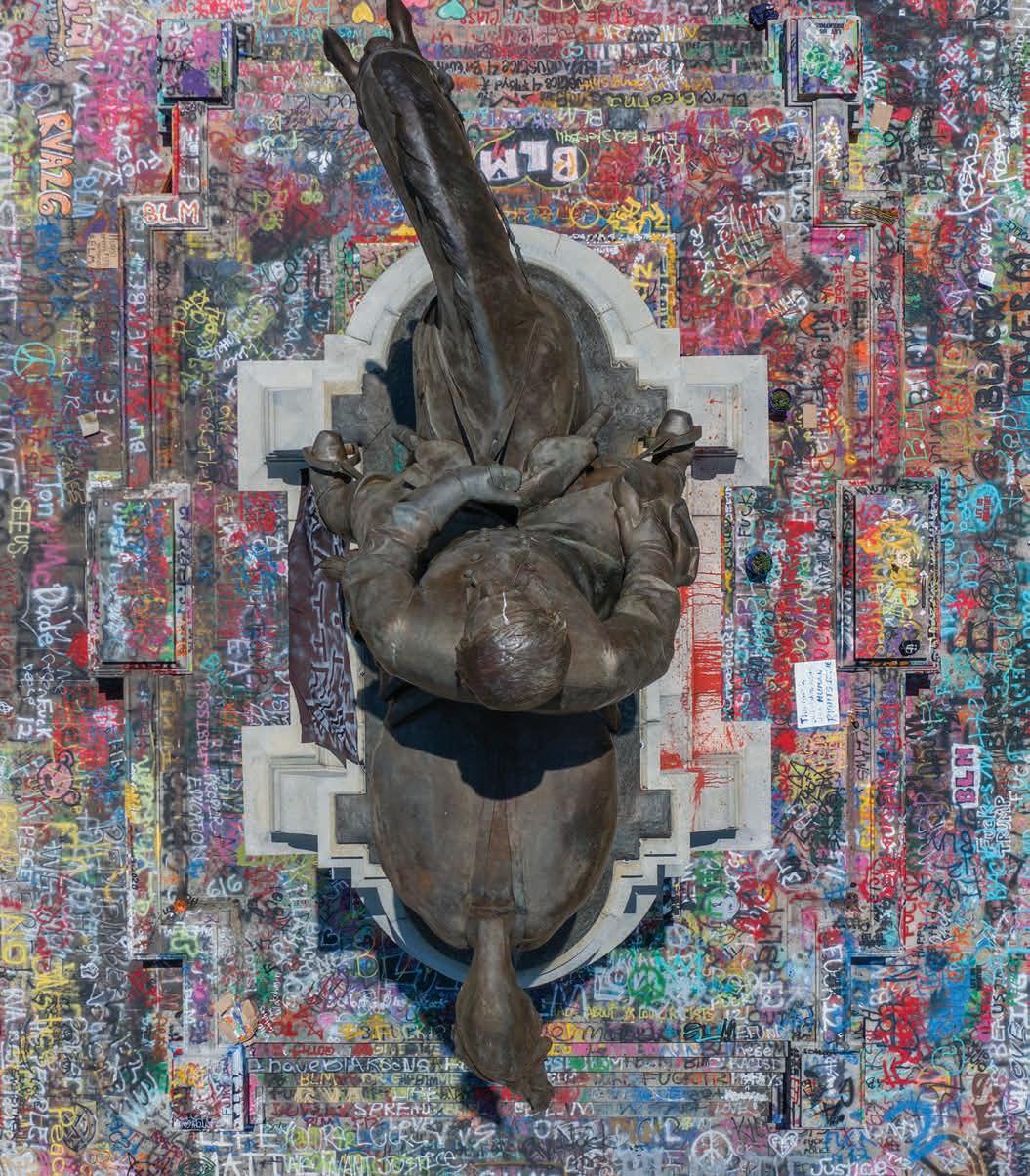

FALL 2025
SUBJECT INDEX
AMERICAN STUDIES
ARCHITECTURAL HISTORY
ARCHITECTURE
ART
ATLANTIC HISTORY
BIOGRAPHY
BLACK STUDIES
BUSINESS
CIVIL RIGHTS
CIVIL WAR
CULTURAL STUDIES
CURRENT AFFAIRS
EDUCATION
EIGHTEENTH-CENTURY STUDIES
EUROPEAN HISTORY
GENDER STUDIES
HISTORY OF MEDICINE
HISTORY OF SCIENCE
HOLOCAUST STUDIES
LATIN AMERICAN STUDIES
LEGAL HISTORY
LITERARY STUDIES
MILITARY HISTORY
PHILOSOPHY
POETRY
POLITICS
RELIGIOUS STUDIES
SLAVERY STUDIES
SOCIAL HISTORY
SOUTHERN HISTORY
URBAN DESIGN
US HISTORY
VICTORIAN STUDIES
WOMEN'S HISTORY
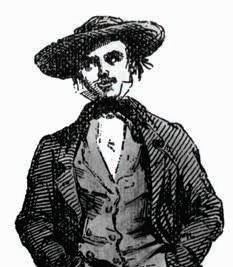
COVER ART
Lee statue from above.
(Photograph by Sanjay Suchak) See page
AUTHOR-TITLE INDEX
16 BLACKMER, Unleashing Black Power
9 CASHWELL/FLAHERTY/MOULDS, Legal Education at the University of Virginia
27 CHAMBERLIN, Barbary Entanglements
30 CHILD, The Dean Disordered
40 COHEN, Genre Theory and Historical Change
33 DUNCAN, Poetic Drive
21 EHLERS, Napoleon in America
34 FITZ, The Literatures of Spanish America and Brazil
26 FOLETTA, Purge and Bleed
10 FRANK, Fiske and Marie Kimball
24 FRIEND/GLOVER, The Gendered Republic
1 GORDON, Nuremberg’s Citizen Prosecutor
14 HAMMANN, Words Colliding
35 HARRER, Devout and Defiant
38 HATTER, Citizens of Convenience
4 HENRIQUES, George Washington
37 HOAGLAND, The Row House in Washington, DC
29 KAMINSKI/MOORE/DANFORTH/LINLEY, Mapping the Constitution
38 KIERNER, The Tory’s Wife
2 LANKFORD, After the Fire
20 LEEPSON, Lafayette
39 LITAKER, Bedazzled Saints
25 MASON, Seeking the High Ground
40 MAZELLA, The Making of Modern Cynicism
11 MAZEREEUW, Design Before Disaster
32 MURDOCH, What We Mourn
28 OBERLE, Creating an Informed Citizenry
18 PARKS/LIVINGOOD, Best Poets 2025
15 PEARSON, Grievous Entanglement
17 PITTS, In Flaming Letters
7 POOLE, Trusted Source
6 RIDGWAY/VIDA/MOORE, The Buried Cause
22 SARSON, The Course of Human Events
13 SEIFERTH/HARRELL/DUNN/WELDON, Captive State
23 SHALEV, The Star-Spangled Republic
31 SWARTZ, Maxims and the Mind
5 TARTER, Vignettes of Colonial Virginia
12 THORP, Seeking Justice
36 VANDER MEULEN, Studies in Bibliography
39 VON DAACKE, Freedom Has a Face
29 WASHINGTON, Papers of George Washington
8 WICKS, Ultimate Questions
19 WILSON, Girls + Eggs
Nuremberg’s Citizen Prosecutor
Benjamin Ferencz and the Birth of International Justice
The remarkable life of one of the twentieth century’s great warriors for justice
On September 29, 1947, in Courtroom 600, before the Nuremberg Military Tribunal, twenty-seven-year-old Benjamin Ferencz approached the lectern to deliver the prosecution’s opening statement against the brutal henchmen of the Einsatzgruppen—the SS killing units responsible for more than 1.5 million deaths during the Holocaust—in what the Associated Press dubbed “the biggest murder trial in history.” As the field of international criminal justice was being born in the aftermath of World War II, only Ferencz led in all its phases: investigation, prosecution, and restitution—an extraordinary feat given his humble origins as a poor immigrant escaping antisemitic persecution in Eastern Europe and growing up in New York’s Hell’s Kitchen. A Harvard Law scholarship student, Ferencz had been Patton’s lead war crimes field investigator before becoming chief prosecutor at Nuremberg. Horrified by these experiences, he then dedicated his career to Holocaust survivors, pioneering key restitution efforts and helping negotiate the landmark Jewish civil society–Israel–West Germany reparations treaty. Later, he became a peace advocate and driving force behind the creation of the International Criminal Court, remarkably joining the prosecution for the Court’s first trial as the last living Nuremberg prosecutor.
Gregory Gordon, a former war crimes prosecutor and the first scholar with full access to Ferencz’s personal papers, has produced an expansive, page-turning account of Ferencz’s troubled early years, his historic Nuremberg achievements, and his post-Nuremberg life as a pioneer victims’ advocate and catalyst behind the International Criminal Court’s creation.
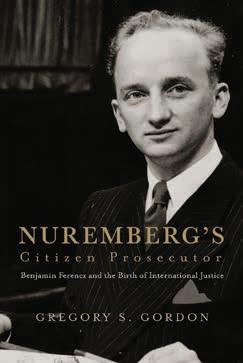
Gregory S. Gordon is Professor of Law at Peking University School of Transnational Law and the author of Atrocity Speech Law: Foundation, Fragmentation, Fruition.
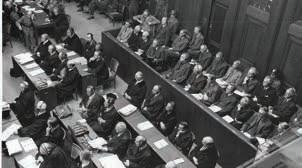
NOVEMBER
512 pages
6 1/8 x 9 1/4
28 b&w illustrations
$39.95 T Cloth
ISBN 978-0-8139-5309-0 Ebook available
AND X
After the Fire
Richmond in Defeat

How the Confederate capital’s citizens, white and Black, faced their future in the wake of Union victory
I n April 1865, the Civil War, which had consumed the lives of the residents of Richmond, Virginia, for four years, ended in a vast conflagration that nearly destroyed their city. As Confederate troops fled and Union forces streamed in, the world they had known literally went up in flames. None could predict what would replace it when the smoke cleared. After the Fire, the highly anticipated follow-up to Nelson Lankford’s Richmond Burning: The Last Days of the Confederate Capital, tells what happened next. Lankford deftly narrates the desperate struggle of Confederates and Unionists, men and women, and white and Black Americans to shape the postwar landscape, emphasizing above all the far-reaching contingency of that pivotal moment.
Offering a kaleidoscope of perspectives from individuals living at the epicenter of the great social and political cataclysm of the nineteenth century, After the Fire evokes a vanished world of privation, defeat, jubilation, false starts, engrained antagonism, and the lost causes of Confederate nostalgia and of racial reconciliation. Most important, Lankford unsettles the sense of inevitability that conditions so much contemporary thinking about this deeply transformative time and puts the reader in the shoes of those who lived through it.
Nelson D. Lankford is the former editor of the Virginia Magazine of History and Biography and the author of Richmond Burning: The Last Days of the Confederate Capital.

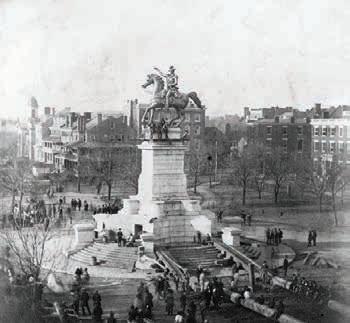

“I was pulled through this powerful story. Richmond, and this singular historical moment, emerges in wonderful detail and clarity.” edward l . ayers , former president of the University of Richmond and Bancroft Prize–winning author of American Visions: The United States, 1800–1860
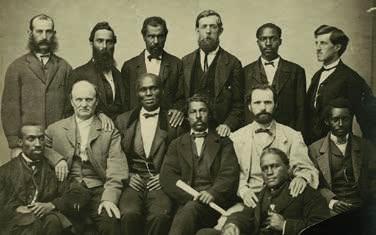
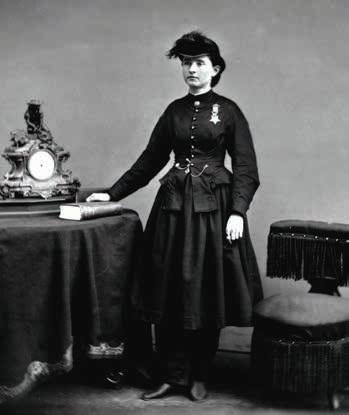
“A triumph. Lankford introduces an almost Shakespearean cast of characters and vividly depicts the worlds made and unmade in the Confederate capital. He has a painter’s touch in presenting places, a photographer’s eye for the image that reveals all, a journalist’s sense for the story that counts, and a historian’s smarts and skills. After the Fire has a rare ‘you are there’ quality and credibility that takes the reader back to Richmond like no other.” randall m . miller , St. Joseph’s University, coauthor of The Northern Home Front During the Civil War
“To live through the aftermath of the Civil War was to withstand the great drama of war, cessation, and the remaking of the nation and to experience the smaller, quotidian facets of life at the same time. So often, books convey one side of that equation or the other—the high-level change or the granular texture of daily life—but this book does both. Its great strength is to restore the contingency that Richmonders who lived through the transition actually experienced.” chandra manning , Georgetown University, author of Troubled Refuge: Struggling for Freedom in the Civil War
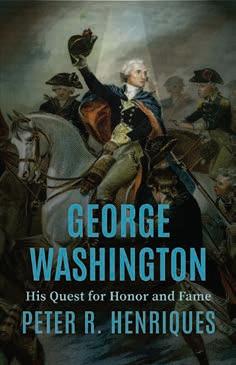
George Washington
His Quest for Honor and Fame
A concise, compelling biography of Washington and the forces that drove him
“Peter Henriques has devoted much of his professional career to a study of the life and character of George Washington. Here he gives us his digested wisdom on the man behind the monument, emphasizing his obsession with how he would be remembered by posterity, which is to say us.” joseph j ellis , Pulitzer Prize–winning author of The Great Contradiction: The Tragic Side of the American Founding
Vignettes of Colonial Virginia
Remarkable Stories from the Founding of America
Illuminating stories of colonial life from the dean of Virginia history
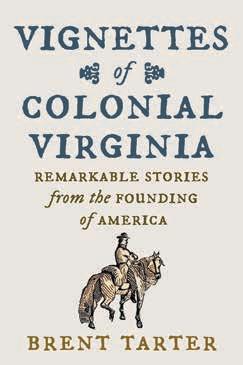
Peter R. Henriques is Professor of History Emeritus at George Mason University and the author of First and Always: A New Portrait of George Washington and Realistic Visionary: A Portrait of George Washington.
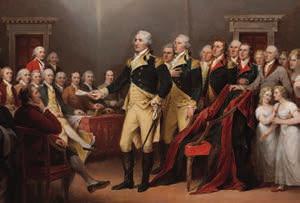
SEPTEMBER
176 pages
5 1/2 x 8 1/2
20 b&w illustrations
$24.95 T Cloth
ISBN 978-0-8139-5418-9
Ebook available
What drove George Washington to become the preeminent man of his time and to secure a lasting reputation as one of history’s great leaders? In this concise and engaging profile, Peter Henriques—a renowned Washington expert—recounts how Washington possessed a desperate desire to be seen, admired, honored, and above all to be remembered. Over the course of his life, Washington deliberately and self-consciously shaped his public image. Even his decision, dictated in his last will and testament, to emancipate the men and women he had held in slavery during his lifetime related directly to his desire to be perceived as honorable after his death and to safeguard his posthumous reputation. The complicated and controversial question of Washington and slavery is examined in an afterword to the biography. Written with a clarity that comes only from deep understanding, this biography goes right to the heart of what made Washington live, and succeed, as the greatest of America’s founding fathers.
“Tarter has humanized Virginia’s history in his telling of the lived, relatable experiences of its people, injecting empathy and immediacy into what is far too often relegated to memorized dates and events. He writes in a way that, for many stories we know, feels like we’re seeing friends in a new light, and for stories we don’t, has us on the edge of our seats.” kate egner , American Battlefield Trust
How did ordinary people experience life in the colonial era, from the humdrum happenings of the day-to -day to the extraordinary events still familiar to millions? In his latest book, renowned historian Brent Tarter paints a vibrant, colorful portrait of the Old Dominion in the era before the Revolution, presenting a new collection of stories culled from the depths of his unparalleled career in archival research. Using the language of his historical subjects, Tarter brings the experience of the past to life in his own inimitable but readily accessible style.
Vignettes of Colonial Virginia encompasses thirty-three episodes in total, ranging chronologically from 1607 to the eve of the War for Independence, and features stories of Virginians of all backgrounds and stripes, told with startling immediacy. With the 250th anniversary of the declaration of American independence upon us, this book situates the reader among the ordinary people who lived on the eve of those extraordinary times.
Brent Tarter, retired historian and a founding editor of the Library of Virginia’s Dictionary of Virginia Biography project, is the author of many books, including Virginians and Their Histories.
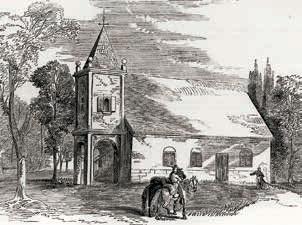
OCTOBER
228 pages 6 x 9
12 b&w illustrations, 1 map
$115.00 X Cloth
ISBN 978-0-8139-5390-8
$24.95 T Paper
ISBN 978-0-8139-5391-5
Ebook available
RIVANNA BOOKS
EDITED BY KATHERINE RIDGWAY, CHRISTINA KEYSER
VIDA, AND ELIZABETH MOORE
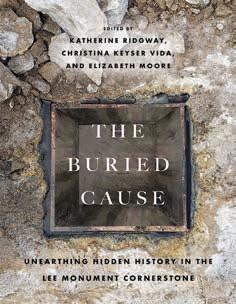
The Buried Cause Unearthing Hidden History in the Lee Monument Cornerstone
Casting a modern light on memories and artifacts of the Civil War
Katherine Ridgway is State Archaeological Conservator at the Virginia Department of Historic Resources. Christina Keyser Vida is Elise H. Wright Curator of General Collections at the Valentine in Richmond, Virginia. Elizabeth Moore is State Archaeologist at the Virginia Department of Historic Resources.
“This ingenious book teaches us about not only the monument to Robert E. Lee but also the history of Richmond, the Confederacy, Virginia, and the South. Each essay is deeply researched and effectively presented, and the expertise of the authors is impressive, though lightly worn.” edward l . ayers , President Emeritus of the University of Richmond and Bancroft Prize–winning author
In December 2021, a copper box filled with artifacts that had been buried beneath the statue of Robert E. Lee on Monument Avenue in Richmond, Virginia, for 134 years was opened with great ceremony. Newspaper articles from 1887 had dubbed these mementos of Lee and life in the capital during and after the Civil War “cornerstone contributions.”
DAVID M. POOLE
Trusted Source
How a Virginia Nonprofit Gained Bipartisan Support in an Era of Political Polarization
How the Virginia Public Access Project revolutionized political transparency and won public trust
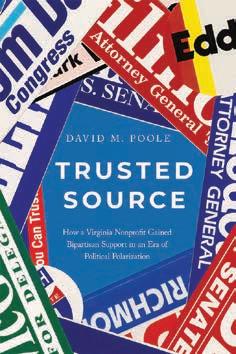
“This book is a roadmap to making transparency happen. You will come, as I did, to admire the author for his gritty determination and personal sacrifices to achieve a lasting institution for the public good.” larry sabato , Director of the Center for Politics, University of Virginia
IDECEMBER
240 pages
7 x 9
61 b&w illustrations
$115.00 X Cloth
ISBN 978-0-8139-5423-3
$24.95 T Paper
ISBN 978-0-8139-5424-0 Ebook available
In The Buried Cause, historians, curators, preservationists, and other experts from across the commonwealth come together to analyze these individual contributions, which include Masonic and military calling cards, copper coins gathered by the young sons of a Confederate veteran, a photograph of a memorial window in the Confederate Memorial Chapel, Southern bonds and currency, muster rolls and medals and reunion programs, and more. The essays also uncover and reveal to readers the lives of the people who donated the objects, the ceremonies that enshrined them, as well as the communities disregarded and unaccounted for in this material snapshot of the past.
n 1997, journalist David Poole launched a one-employee nonprofit to shine light on a blind spot in Virginia’s lax campaign finance system. Over the next quarter century, the Virginia Public Access Project (VPAP) assumed an increasingly larger role in state politics by addressing two crises in American democracy—the decline of newspapers and the tribalization of politics. VPAP built a sustainable business model that provided paywall-free insights into state politics. Most important, VPAP adhered to a fiercely independent, fact-based approach that won the trust of Republicans and Democrats alike.
Trusted Source, written by VPAP’s founder, tells the unlikely story of how his organization revolutionized political transparency in Virginia. It describes the precarious early days when VPAP was financially dependent upon the same powerful interests it was shining a light on. Reflecting on VPAP’s first twenty-five years, Poole brings a unique perspective to some of the most vexing issues of our time: money in politics, the crisis of American newspapers, the fracturing of information sources, and the precipitous erosion of confidence in our institutions. His account provides a blueprint for plucky nonprofits and offers hope that bipartisan trust is still possible, even in times as troubled as ours.
David M. Poole was Executive Director of the Virginia Public Access Project, Inc., from 1997 to 2023.

AUGUST
222 pages
6 x 9
13 b&w illustrations
$115.00 X Cloth
ISBN 978-0-8139-5347-2
$29.50 S Paper
ISBN 978-0-8139-5348-9 Ebook available
ANDREW C. WICKS WITH ALEXANDER S. BLEIBERG AND JOHN K. NOLAN
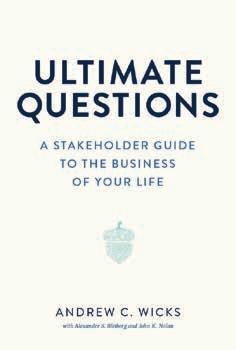
Ultimate Questions
A Stakeholder Guide to the Business of Your Life
The accumulated wisdom of a beloved business professor’s signature course
“
Andrew C. Wicks is the Ruffin Professor of Business Administration and the Richard M. Waitzer Bicentennial Professor of Ethics at the University of Virginia’s Darden School of Business. Alexander S. Bleiberg is a graduate student at the Institute for Clinical Social Work.
John K. Nolan is a graduate student at the University of Aberdeen.
Ultimate Questions is a gentle introduction and call to reflection on some of life’s deepest questions, written in an engaging and open-minded way. It invites students to the examined life without forcing answers upon them. It is a unique synthesis of philosophy, psychology, management theory, and more.” jason brennan , Georgetown University, coauthor of Business Ethics for Better Behavior
Who are we, and who am I? Why are we here, and why am I here?
What is the good life, and what is my good life? For years, business ethics professor Andrew Wicks pursued these lines of inquiry in his perennially popular course Ultimate Questions and Creating Value for Stakeholders. Now his book distills the intellectual explorations and hard conversations he and his students navigated together in the classroom into an accessible form available to readers everywhere.
EDITED BY MEGGAN F. CASHWELL, RANDALL N. FLAHERTY, AND LOREN S. MOULDS
Legal Education at the University of Virginia
Tradition and Transformation
Tracing the material and intellectual development of one of the nation’s leading law schools
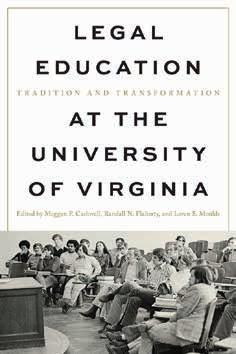
“A wonderful collection of essays. Informed by the school’s rich archives, contributors investigate who was included, who belonged, and who dominated the spaces reserved for legal education at the preeminent school in the South.” kellen r . funk , Columbia Law School, author of Law’s Machinery: Reforming the Craft of Lawyering in America’s Industrial Age
OAUGUST
216 pages
6 x 9
1 b&w illustration
$29.95 T Cloth
ISBN 978-0-8139-5426-4
Ebook available
Ultimate Questions is grounded in stakeholder theory: the idea that business leaders need to consider the humanity and complexity of all stakeholders—employees, community members, suppliers, and more—to thrive in ways that go beyond profit. It takes as a given that money is not the only goal of life or work and, like the course, encourages constant curiosity and a spirit of exploration.
ver two centuries, UVA Law evolved from a regional, segregated law school into a nationally recognized leader in legal education. As this collection highlights, its changing curriculum—always in conversation with broader historical, cultural, and social forces—proved crucial to this profound transformation. Initially shaped by white Southern perspectives on race, gender, and states’ rights, UVA Law grew beyond its early identity through the inclusion of new voices in both its faculty and its student body. By examining the complex interplay between the school’s institutional mission, its educational program, and its social context, the contributors offer a comprehensive view of how UVA Law has adapted to meet the demands of legal education in a changing world.

Meggan F. Cashwell is Curator of Historical Collections at UVA’s Claude Moore Health Sciences Library. Randall N. Flaherty is Law School Historian and Head of Special Collections at UVA Law. Loren S. Moulds is Head of Digital Scholarship and Preservation Services at UVA Law.
DECEMBER
384 pages
6 x 9
57 b&w illustrations
$35.00 X Cloth
ISBN 978-0-8139-5379-3
Ebook available
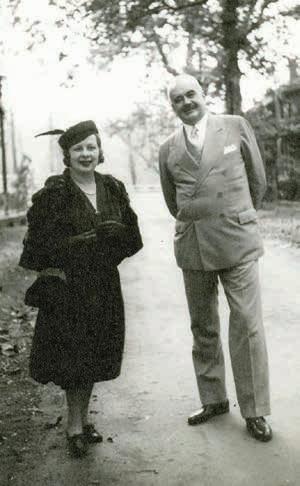
Marie Frank is Associate Professor and Director of the Architectural Studies Program at the University of Massachusetts Lowell and the author of Denman Ross and American Design Theory.

DECEMBER
240 pages
6 1/8 x 9 1/4
45 b&w illustrations
$115.00 X Cloth
ISBN 978-0-8139-5399-1
$29.50 X Paper
ISBN 978-0-8139-5400-4
Ebook available
EDITED BY MARIE FRANK
Fiske and Marie Kimball
Shaping Public Engagement with Architecture and the Arts
The fascinating journey of one of the art world’s great midcentury power couples
“Full of unexpected delights, this volume capably establishes for a new generation of readers Fiske Kimball’s primacy in the study of American art and architecture in the first half of the twentieth century. Equally important, the book reintroduces Marie Kimball—a substantial scholar in her own right—and highlights her role in a vital creative and intellectual partnership.” jeffrey klee , MCWB Architects
The essays in this interdisciplinary volume explore how Fiske and Marie Kimball, together and in their own respective ways, shaped the experience and understanding of art and architecture in the twentieth century. From his pioneering publication Thomas Jefferson, Architect in 1916 through his long connection with Monticello and position as director of the Philadelphia Museum of Art, Fiske Kimball emerged as a powerful and influential voice. He was dubbed “the dean of American architectural history,” and his scholarship established the rich legacy of the past while his engagement with public monuments guided design in the present. Marie Kimball was an accomplished historian and prolific writer whose multivolume biography of Jefferson was widely celebrated. She was also the first curator of Monticello and played a key role in the display and interpretation of its historic objects. Although both Fiske and Marie distinguished themselves independently, they also regularly worked together, and their joint efforts evidence a rare partnership of the mind. This collection celebrates and contextualizes this remarkable pair.
Design Before Disaster Japan’s Culture of Preparedness
The architecture of disaster preparedness
“A well-researched , clearly written investigation of the ways that Japanese decision makers, designers, and emergency managers have built physical infrastructure in ways that can save lives and mitigate loss. Those who seek to keep residents and communities safe from shocks of all kinds will learn something important from this book. It sets a high bar for future scholarship in the field.” daniel p aldrich , Northeastern University, author of Black Wave: How Networks and Governance Shaped Japan’s 3/11 Disasters
The islands of the Japanese archipelago are among the most frequent sites of natural disaster in the world—catastrophes that include typhoons, earthquakes, volcanic eruptions, floods, cyclones, and tsunamis. Residents of Japan have responded to their precarious environmental circumstances by developing a unique culture of preparedness—known as bōsai —that has become embedded in everyday life, equipping the island nation to make provision for what disasters may come and even, to an extent, prevent them. In this practical, engaging text, Miho Mazereeuw, whose interdisciplinary team has carried out ethnographic fieldwork and space-based analysis for more than two decades, offers a detailed guide to the concept of bōsai and its effective application on the ground. An urgent and timely book, Design Before Disaster represents the cutting edge in disaster mitigation and architectural planning in endangered places across the globe.

Miho Mazereeuw is Professor of Architecture and Urbanism and the Director of the Urban Risk Lab at the MIT School of Architecture.
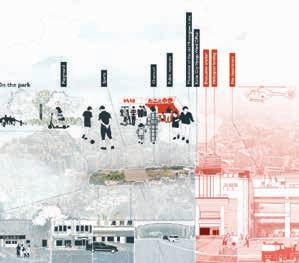
AUGUST
456 pages
8 1/2 x 10
88 color and b&w illustrations
$115.00 X Cloth
ISBN 978-0-8139-5091-4
$39.50 X Paper
ISBN 978-0-8139-5092-1
Ebook available
EDITED BY ERIC SEIFERTH, KEVIN T. HARRELL, KATHERINE JOLLIFF DUNN, AND NICK WELDON
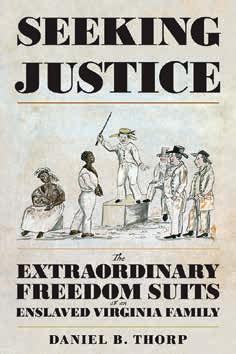
Seeking Justice
The Extraordinary Freedom Suits of an Enslaved Virginia Family
The amazing story of one illegally enslaved Virginia family’s dauntless legal appeal for freedom
Captive State
Louisiana and the Making of Mass Incarceration
FDaniel B. Thorp is Associate Professor of History at Virginia Tech and the author of In the True Blue’s Wake: Slavery and Freedom among the Families of Smithfield Plantation.
“Thorp successfully brings to light, for the first time, the full complexity of the largest and most protracted freedom suit in Virginia’s history, giving an excellent sense of the nineteenth-century legal landscape that his subjects encountered. It is the story of one family’s fragile oral history vs. Virginia law—with all its weighty institutions, statutes, and legal culture. A laudable achievement.” ted maris - wolf , William & Mary, author of Family Bonds: Free Blacks and Re-enslavement Law in Antebellum Virginia
Before the Civil War brought emancipation to the South, some enslaved people managed to use the legal system—the same one that had concocted and long perpetuated their bondage—to sue for their freedom from owners who unlawfully held them in slavery. In Seeking Justice, Daniel Thorp tells the story behind Unis v. Charlton’s Administrator, one of the most extensive of these freedom suits in all of American history.
or decades, Louisiana has had the highest incarceration rate in the United States. If it were a country, it would have the second-highest incarceration rate in the world. Far from a modern phenomenon, this distinction is rooted in more than three centuries of history—roots that extend out from the principal city of New Orleans, once the epicenter of the American slave trade, to the agricultural fields of the Louisiana State Prison, commonly known as Angola. In its examination of the state’s long march toward confining more of its citizens than almost anywhere on earth, Captive State: Louisiana and the Making of Mass Incarceration arrives at an irrefutable truth: that the institutions of slavery and mass incarceration are historically linked.
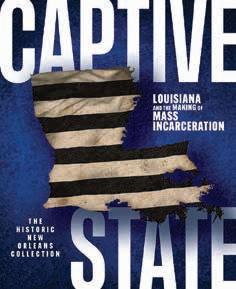
AUGUST
228 pages
6 x 9
10 b&w illustrations, 1 table
$120.00 X Cloth
ISBN 978-0-8139-5344-1
$34.50 X Paper
ISBN 978-0-8139-5345-8
Ebook available
It began when a woman, known only as Flora, was born in Connecticut and sold into slavery in Virginia. Her children sued, and over more than thirty years, four cases involving almost fifty plaintiffs moved through the Virginia court system before finally reaching a conclusion in 1855. Seeking Justice narrates this remarkable saga, illuminating Black Americans’ legal literacy and shining a light on the unusual permutations of the antebellum judicial world and the courage it took for Flora’s family to plunge into the legal heart of a slave society.
Adapted from the groundbreaking exhibition of the same name, Captive State traces the evolution of laws and customs that created this carceral system and that, by design, have disproportionately harmed Black Louisianians. The book accentuates this narrative with profiles of people impacted by these systems, spotlights on key historical objects, and insightful data visualizations. As the human and financial costs continue to mount, Captive State details the choices that led us here—and asks whether Louisiana is fated to remain captive to its history.
Captive State is supported by a grant from Borealis Philanthropy’s Spark Justice Fund.
Eric Seiferth is a curator/historian at the Historic New Orleans Collection (HNOC). Kevin T. Harrell is a collections cataloger at HNOC. Katherine Jolliff Dunn is a curatorial cataloger at HNOC. Nick Weldon is an editor at HNOC and coauthor of Monumental: Oscar Dunn and His Radical Fight in Reconstruction Louisiana.
NOVEMBER
100 pages
9 x 11
24 b&w and 34 color illustrations
$19.95 T Paper
ISBN 978-0-917860-94-2
ANDREW F. HAMMANN
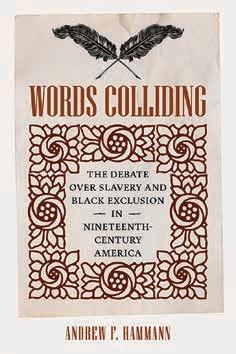
Words Colliding
The Debate over Slavery and Black Exclusion in Nineteenth-Century America
ERIN PEARSON
Andrew F. Hammann is a Senior Historian of the New American History initiative at the University of Richmond.
The long history and lasting impact of the rhetoric of Black exclusion in American politics and culture
“Hammann’s examination of Black expatriation arguments provides insight on a crucial, yet overlooked, aspect of nineteenth-century American political history, and illustrates the long arc of how this ideology was central to the emergence of Jim Crow.” ousmane k power - greene , Clark University, author of Against Wind and Tide: The African American Struggle Against the Colonization Movement
In 1787, Thomas Jefferson declared that the United States was destined to become a nation free of slavery—and of its entire Black population. Following his cue, Henry Clay and other prominent politicians founded the American Colonization Society in 1816, launching the Black expatriation (“colonization”) movement, a political force that, over the next eighty years, promoted the removal, with federal support, of the nation’s Black population. Throughout this time, Frederick Douglass and the overwhelming majority of Black Americans opposed the colonization movement with great vigor and conviction, characterizing it as one of their greatest enemies, second only to slavery itself.
Grievous Entanglement Consumption, Connection, and Slavery in the Atlantic World
How abolitionists persuaded people of their personal complicity with slavery to advance the cause of freedom
“Pearson excels at bringing together and moving between materials from different areas, from popular culture to canonical novels. Her readings are sensitive, nuanced, and eye-opening ; the writing is clear and eloquent.” charlotte s . sussman , Duke University, author of Peopling the World
Grievous Entanglement explores the most common way that people in the Atlantic world came to understand their personal connection to, and complicity with, slavery in the late eighteenth and into the nineteenth century: consumption. Consumption became a formidable trope that tied the evils of chattel slavery to individuals’ behavior through their purchase of slave-produced commodities like cotton or sugar. With her groundbreaking analysis of this dominant conceptual framework, Erin Pearson provides new insight into both the motivation behind and the functioning of antislavery activism.
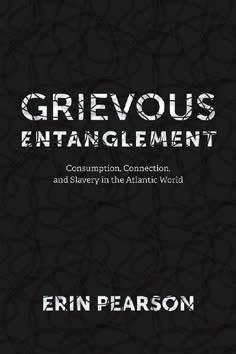
Erin Pearson is Associate Professor of English at Elon University.
OCTOBER
324 pages
6 x 9
$120.00 X Cloth
ISBN 978-0-8139-5368-7
$35.00 X Paper
ISBN 978-0-8139-5369-4
Ebook available
Words Colliding offers the fullest account to date of this political debate, highlighting its dramatic impact on the national conversations regarding enslavement and Black civil rights. Colonization advocates claimed that centuries of racialized bondage had made civic equality impossible. Black activists vehemently rejected this claim, denying that Black freedom was a national problem and warning that colonization rhetoric encouraged and justified racial oppression, in its varied forms, during both the pre–Civil War decades and the long era of Jim Crow, the afterlives of which persist to this day.
Unlike sentimental literature, which sought to engender sympathy for the enslaved, consumption-as-connection leveraged aversion to inspire people to sever their ties with an evil institution. Strategic disgust, Pearson shows, proved effective in inciting abolitionist action. It also frequently slipped into nonabolitionist and even proslavery uses by actually fomenting racism, as this book is the first to demonstrate. Examining a wide variety of media, including poetry, political cartoons, blackface minstrelsy, slave narratives, and novels produced from the late eighteenth to mid-nineteenth centuries, this ingeniously interdisciplinary study reveals how aversive consumption powerfully shaped ideas about slavery to both positive and pernicious effect.
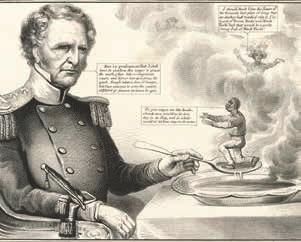
OCTOBER
228 pages
6 x 9
3 color and 6 b&w illustrations
$120.00 X Cloth
ISBN 978-0-8139-5387-8
$35.00 X Paper
ISBN 978-0-8139-5388-5
Ebook available
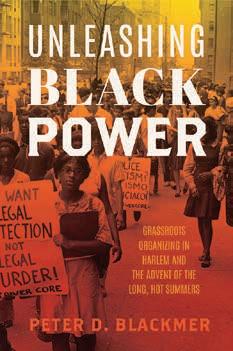
Unleashing Black Power
Grassroots Organizing in Harlem and the Advent of the Long, Hot Summers
Reappraising the rise of the civil rights movement in the iconic center of Northern Black life
“No one has ever taken this kind of deep dive into Harlem radicalism in the late 1950s and early 1960s. Blackmer’s book brings many grassroots leaders to life who deserve the attention. It should be read widely.” mark naison , Fordham University, author of Communists in Harlem During the Depression
Peter D. Blackmer is Assistant Professor of Africology and African American Studies at Eastern Michigan University.
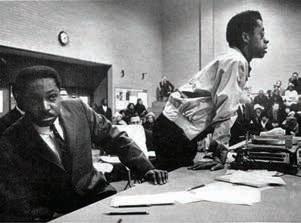
SEPTEMBER
414 pages
6 x 9
22 b&w illustrations
$120.00 X Cloth
ISBN 978-0-8139-5375-5
$35.00 X Paper
ISBN 978-0-8139-5376-2
Ebook available
Unleashing Black Power explores the local dynamics, national connections, and global context of the Black freedom movement in Harlem from 1954 to 1964, illuminating how activists, organizers, and ordinary people mounted their resistance to systemic racism in the Jim Crow North. The richness of Black radical thought and action in this period made Harlem a key battleground in the national civil rights movement, transformed local Black grassroots politics, and facilitated the rise of Black Power in New York City. At the same time, the city’s attempts to clamp down on activists revealed the repressive nature of Northern liberalism and heralded the expansion of the carceral state. Peter Blackmer argues that this decade of confrontations between Black communities and white state power caused Harlem residents and activists to seek “new means” for achieving freedom within a city, state, and nation determined to deny it. Tracing the dual evolution of Black radicalism and white resistance, Unleashing Black Power offers a new framework for analyzing the epochal urban uprisings in the 1960s.
EDITED BY VERNER D. MITCHELL AND CYNTHIA DAVIS
In Flaming Letters
Lucia Pitts, Poet of the Six Triple Eight
A treasury of poetry and prose from an unsung trailblazer of Black literature
“A signal, pioneering contribution to ongoing efforts to broaden the Black literary canon. Davis and Mitchell’s narrative is well written and rigorously researched, and it opens the door to Pitts’s remarkable life and work.” laura elizabeth vrana , University of South Alabama, author of Pitfalls of Prestige: Black Women and Literary Recognition
Lucia M. Pitts (1904–1973) was an African American writer and Army veteran whose story has never been told. Her poetry, including love lyrics of striking sensuality and honesty, was admired by Langston Hughes, Countee Cullen, and Dorothy West. Her work first appeared during the Harlem Renaissance, influenced by Harriet Monroe’s Poetry magazine and blues singers Ma Rainey and Bessie Smith. A native of Chicago’s Bronzeville, Pitts challenged discrimination and segregation throughout her remarkable life, both as a member of President Franklin Roosevelt’s “Black Cabinet” and as the first African American woman employed at the War Department. Then, in 1943, Pitts joined the 6888th Central Postal Directory Battalion, the Army’s only all-Black , all-female battalion, which later received the Congressional Gold Medal.
Pitts’s own account of her service with the Six Triple Eight, however, has remained unpublished until now. This volume brings together a biography of Pitts, her complete military memoir, and one hundred of her finest poems.
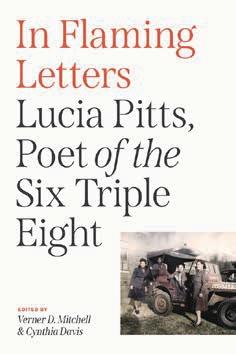
Verner D. Mitchell is Professor of English at the University of Memphis. Cynthia Davis is Professor of English at San Jacinto College. Together they have published seven books.
DECEMBER
180 pages
6 x 9
13 b&w illustrations, 1 chart
$90.00 X Cloth
ISBN 978-0-8139-5405-9
$24.50 X Paper
ISBN 978-0-8139-5406-6
Ebook available
CARTER G. WOODSON INSTITUTE

Cecily Parks is the editor of the anthology The Echoing Green: Poems of Fields, Meadows, and Grasses and the author of three poetry collections, including most recently The Seeds Her poems have appeared in the New Yorker, A Public Space, the New Republic, The Best American Poetry 2022, and elsewhere. She teaches in the MFA Program at Texas State University.
EDITED BY CECILY PARKS JEB LIVINGOOD, SERIES EDITOR
Best New Poets 2025
50 Poems from Emerging Writers
praise for earlier editions :
“[A] reminder that contemporary poetry is not only alive and well but continuing to grow.” publishers weekly
“This collection stands out among the crowd claiming to represent emergent poets. Much of the editing and preliminary reading was done by emerging poets themselves, which results in an anthology that’s fresh and eclectic, and may actually represent a significant portion of the best new poetry being written by the next generation.” virginia quarterly review
Entering its third decade, Best New Poets has established itself as a crucial venue for rising poets and a valuable resource for poetry lovers. The only publication of its kind, this annual anthology is made up exclusively of work by writers who have not yet published a full-length book. The poems included in this eclectic sampling represent the best from the many that have been nominated by the country’s top literary magazines and writing programs, as well as some two thousand additional poems submitted through an open online competition. The work of the fifty writers represented here provides the best perspective available on the continuing vitality of poetry as it is being practiced today.
Girls + Eggs Contemporary Art Against Reproductive Injustice
Girls + Eggs is a work of poor curating in the form of a feminist road trip.
Originating in Krakow, Poland, the contributors traveled between continents, arriving on Staten Island, New York City, then moving on to Duke Gallery of Fine Art in Virginia, the only Southern state that has not increased restrictions on abortions since the overturning of Roe v. Wade legislation. The project included a diverse range of artists working in feminist solidarity and fury in response to widespread attacks on reproductive rights and sexual citizenship. Engaging women, men, transgender, nonbinary, queer, lesbian, and cisgender individuals, mothers, fathers, the child-free, dog lovers, and feminists, Girls + Eggs includes a world of individuals, characters, thoughts, and fragments from those repressed by and resisting the return to old world patriarchal norms. This catalog of the exhibition includes four texts and a principal essay on contemporary art and reproductive justice, particularly in relation to recent near-total bans on access to abortion.

Siona Wilson is Associate Professor of Art History at CUNY Staten Island and the author of Art Labor, Sex Politics: Feminist Effects in 1970s British Art and Performance.
NOVEMBER
150 pages
7 1/2 x 7 1/2
$12.95 T Paper
ISBN 979-8-9917112-1-0
AVAILABLE
55 pages
8 x 9
30 color illustrations
$20.00 X Paper
ISBN 978-1-63944-273-7
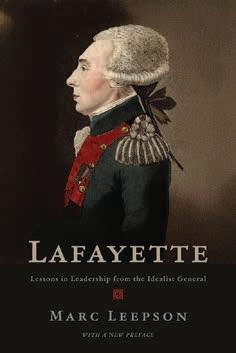
Lafayette Lessons in Leadership from
the Idealist General
Assessing the legendary Frenchman and his remarkable military career on both sides of the Atlantic
Napoleon in America
Bonaparte and the Rhetoric of US Empire
How Napoleon’s legacy infused American debates over empire in the nineteenth century
Marc Leepson is a journalist, historian, and the author of eleven books, including Saving Monticello: The Levy Family’s Epic Quest to Rescue the House That Jefferson Built.
“An affectionate and engrossing portrait.” publishers weekly
“An upbeat biography of the great French American patriot who channeled his zeal into a formidable force of leadership.” kirkus reviews
TAVAILABLE
228 pages
6 x 9
14 b&w illustrations
$21.95 T Paper
ISBN 978-0-8139-5442-4
Ebook available
he Marquis de Lafayette is an icon of both American and French history. In Marc Leepson’s concise and engaging biography of this captivating figure, we learn how Lafayette, born into an aristocratic French family of warriors, traveled to the colonies at the age of nineteen to fight as a volunteer in the American Revolutionary War. Continental Army Major General Lafayette was soon embraced by George Washington and Thomas Jefferson, who became his lifelong friends. A fearless, accomplished battlefield commander, he also helped to convince the French court to provide crucial financial and military support to the Americans, which aided their defeat of the British. On his return to France, Lafayette played a leading role in the movement to make France a constitutional monarchy, served as commander of the National Guard during the French Revolution, and as a member of the Chamber of Deputies, opposed Napoleon’s rule and was instrumental in ending the short-lived French July Revolution of 1830 that brought the “citizen king,” Louis-Philippe, to the throne. Leepson’s acclaimed biography of this deservedly distinguished statesman and military man is now available in paperback.
“This book will reshape how we view American empire in the nineteenth century. Instead of simply reminding us that Napoleon was present in American discourse, Mark Ehlers uses him as a medium to show how Americans in the nineteenth century viewed empire in starkly different ways, and how they fiercely debated them all.”
daniel j . burge , author of A Failed Vision of Empire: The Collapse of Manifest Destiny, 1845–1872
No individual dominated the early nineteenth century like Napoleon Bonaparte, the titanic figure who came to embody the French Revolution and nearly brought all of Europe to heel. He exerted a cultural influence in his time that few figures in world history have ever attained.
As a result, when Americans debated the merits, limits, and administration of their own burgeoning republican empire, they continually invoked Napoleon to make their point. From the presidency of Thomas Jefferson and for decades afterward, the legacy of Napoleon loomed over discussions about the course their country’s expansion would take.
As Mark Ehlers shows, Americans of all persuasions rhetorically enlisted Napoleon to advocate for their competing visions of US imperialism. Whether they admired his method of imperial rule or saw in him a warning against the hubris of imperial overreach, Napoleon’s image served as an essential cultural touchpoint in the early republic’s rhetoric of empire—until finally, by the Mexican War, most Americans had come to imagine their republican empire as a worthy successor to Napoleon’s own.
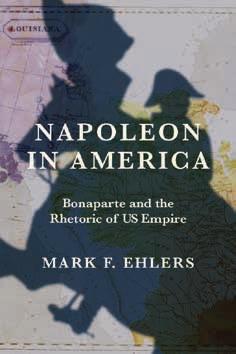
Mark F. Ehlers is a History Instructor at Sandy Spring Friends School.
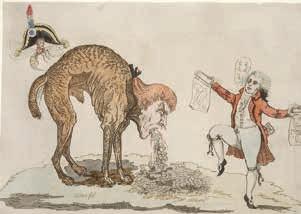
SEPTEMBER
246 pages
6 x 9
10 b&w illustrations
$120.00 X Cloth
ISBN 978-0-8139-5353-3
$35.00 X Paper
ISBN 978-0-8139-5354-0
Ebook available
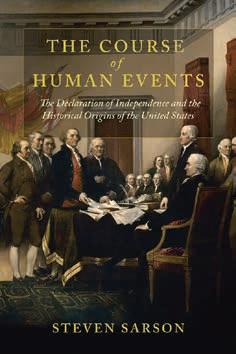
The Course of Human Events
The Declaration of Independence and the Historical Origins of the United States
How reading the Declaration of Independence as a document of history explains its intended meaning
The Star-Spangled Republic
Political Astronomy and the Rise of the American Constellation
Examining the cosmic conceit at the heart of early American political rhetoric
Steven Sarson is Professor of American Civilization at Jean Moulin University Lyon 3 and the author of British America, 1500–1800: Creating Colonies, Imagining an Empire.
“This is the first serious engagement with the Declaration’s philosophical underpinnings in several decades.” robert g parkinson , Binghamton University, author of Thirteen Clocks
Thomas Jefferson chose his words carefully. Few could have been more deliberate than “When in the Course of human events,” the phrase with which he opened the Declaration of Independence. As Steven Sarson shows, the original Declaration moved through the ages of human history from Creation to American independence, assessing it according to “the Laws of Nature and of Nature’s God.”
The Declaration’s history and historical consciousness therefore help answer one of American history’s great questions: How did the founders reconcile their lofty views on equality and liberty with the inequities and iniquities that they maintained in their time? The contingencies of history and the complexities of natural law, Sarson demonstrates, meant that the Declaration’s eloquent promises of equality and liberty only applied partially to women and poor men, and not at all to Loyalists, Indigenous Americans, and enslaved people.
“The concept of ‘political astronomy,’ a hidden-in-plain-sight phenomenon that awaited Shalev’s observant and curious mind to ‘discover,’ is alone worth the price of admission. Shalev’s explication of its origins, uses, and meanings establishes its significance in and implications for early American political culture and discourse, and his wide-ranging research and discerning analysis yields a number of thought-provoking and historically important insights. Bravo!” tamara plakins thornton , University at Buffalo, author of Nathaniel Bowditch and the Power of Numbers: How a Nineteenth-Century Man of Business, Science, and the Sea Changed American Life
WNOVEMBER
276 pages
6 x 9
$120.00 X Cloth
ISBN 978-0-8139-5396-0
$35.00 X Paper
ISBN 978-0-8139-5397-7
Ebook available
The Declaration’s assertion that “all men are created equal” has since become a promise of universal equality and liberty. As we reach its 250th anniversary, it is important to understand its original context as well as to continue the mission of making its promises a lived reality for all.
hy does the American flag use stars to represent the states? In The Star-Spangled Republic, Eran Shalev answers this and many other questions, considering the cosmic imagery—so familiar today but so peculiar on reflection—that suffused the United States’ early political culture. In this comprehensive study, Shalev uncovers how “political astronomy”—the discussion and representation of politics through astronomical models, allusions, and metaphors—reflected and facilitated the emerging worldview that enabled Americans to justify and find meaning in the country’s new democratic modes of governance and its federal system. No other scholar has looked at American political rhetoric through this lens; in so doing, Shalev is able to explain in fascinating detail how Americans turned away from the sun of heliocentric monarchy toward the night sky full of federated constellations, and to discover republicanism imprinted in the firmament.
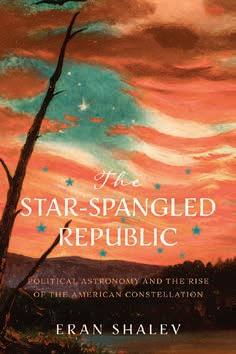
Eran Shalev is Professor of History at Haifa University and the author of Rome Reborn on Western Shores and American Zion
NOVEMBER
258 pages
6 x 9
34 b&w illustrations
$100.00 X Cloth
ISBN 978-0-8139-5384-7
$26.50 X Paper
ISBN 978-0-8139-5385-4
Ebook available
EDITED BY CRAIG THOMPSON FRIEND AND LORRI GLOVER
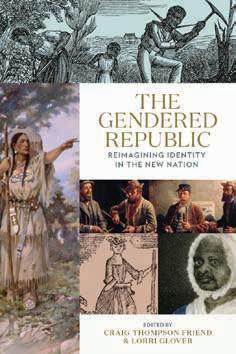
The Gendered Republic
Reimagining Identity in the New Nation
An authoritative assessment of the early American republic through the lens of gender
Seeking the High Ground Slavery
and Political Conflict in the British Atlantic World
How American slavery engendered a new political vocabulary used on both sides of the Atlantic
Craig Thompson Friend is Professor of History and Public History at North Carolina State University. Lorri Glover is Professor of History at Saint Louis University.
“Sophisticated and compelling. The Gendered Republic is destined to become a classic.” maurizio valsania , University of Turin, Italy, author of First Among Men: George Washington and the Myth of American Masculinity
What does it mean to study early American history through gender? The essays in this collection, written by the best emerging and established historians in the field, bring together women’s history with masculinity studies to showcase the transformative impact of gender history on our understanding of the early American republic. In addition to state-of-the-field historiographical overviews, The Gendered Republic features essays that use gender history to suggest new chronological and geographic frameworks, broaden understandings of politics and citizenship, highlight the complexities of intersectional identities, and explore new approaches that center bodies and sexualities. Collectively, the contributors showcase the vibrancy of gender history as a frame of inquiry, revealing how shifting notions of women’s and men’s roles shaped the lives of people in the early American republic—white, Black, and Indigenous—and how those people, in turn, experienced and redefined gender and, with it, their communities, cultures, laws, families, and nations.
“No one understands the politics of slavery and the rise of antislavery better than Matthew Mason. This is because he knows the original sources and deeply understands what historians have done and where they’ve taken detours. He keeps his eye on the big picture and his feet on the ground even while explaining the achievements and the limits of those who reached for the higher ground.” david waldstreicher , The Graduate Center, City University of New York, author of The Odyssey of Phillis Wheatley: A Poet’s Journeys Through American Slavery and Independence
HNOVEMBER
390 pages
6 x 9
5 b&w illustrations
$120.00 X Cloth
ISBN 978-0-8139-5372-4
$45.00 X Paper
ISBN 978-0-8139-5373-1
Ebook available
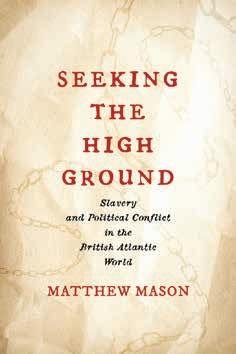
Matthew Mason is Professor of History at Brigham Young University and the author of Slavery and Politics in the Early American Republic.
ow is it, Samuel Johnson famously asked on the eve of the Revolution, that Americans could so vociferously demand freedom for themselves while so conspicuously continuing to deny it to those they held in slavery? With Seeking the High Ground, Matthew Mason helps answer that piercing question. As he shows, the language of slavery and freedom had long suffused Anglo-American political debates in the eighteenth century, with the Revolution emerging as one particularly hyperdramatic act during which combatants on both sides of the war of words connected the idea of slavery to the headline issues of the day. Mason details how Patriots and Loyalists alike deployed the rhetoric of slavery in their debates about all the crucial questions of the day, including republicanism, taxation and representation, and—by claiming the moral high ground—the nature of the Revolutionary War itself. These debates left complex rhetorical and political legacies for those seeking to abolish and defend slavery in both the new US and the remaining British Empire.
OCTOBER
6 x 9
348 pages
$120.00 X Cloth
ISBN 978-0-8139-5341-0
$35.00 X Paper
ISBN 978-0-8139-5342-7
Ebook available
JOHN M. CHAMBERLIN
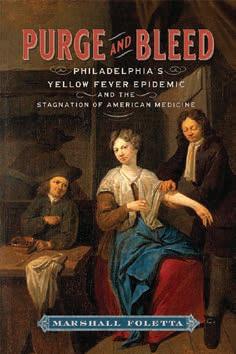
Purge and Bleed
Philadelphia’s Yellow Fever Epidemic and the Stagnation of American Medicine
Explaining the deadly stasis of American medicine in the nineteenth century
“A lively narrative that will appeal to both an academic and a general readership.”
deanne stephens nuwer , University of Southern Mississippi, author of Plague Among the Magnolias: The 1878 Yellow Fever Epidemic in Mississippi
Barbary Entanglements
Realizing American Independence on the World Stage
How the United States’ confrontation with North African raiders established its legitimacy on the world stage
Marshall Foletta is an independent scholar. He completed his PhD at the University of California, Berkeley, and is the author of Coming to Terms with Democracy: Federalist Intellectuals and the Shaping of an American Culture, 1800–1828 (Virginia).
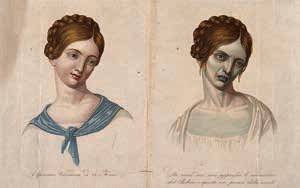
JULY
282 pages
6 x 9
16 b&w illustrations
$120.00 X Cloth
ISBN 978-0-8139-5311-3
$35.00 X Paper
ISBN 978-0-8139-5312-0
Ebook available
The 1793 yellow fever epidemic in Philadelphia was a shock to the system of American medicine—or it should have been. In the decades that followed the most infamous health crisis of the early republic, American doctors by and large failed to move beyond ancient ideas of disease and treatment. The contentiousness of Philadelphia’s medical community, led by Benjamin Rush, prevented any meaningful advances in response to the outbreak.
Marshall Foletta investigates this peculiar dormancy over the course of the long nineteenth century and reveals how little had changed by the time of the 1832 cholera epidemic—leading, he argues, to exhaustion and despair among medical professionals and fatalism among the general public. Only at the end of the century did researchers make the all-important breakthroughs that produced an antidote to yellow fever. This is the story of how received wisdom became dangerously entrenched in the early United States, and the deadly consequences of scientific stagnation and intellectual inertia.
“A well-researched , original, and extremely well-written book. Barbary Entanglements carves out a unique position within the literature as a comprehensive diplomatic history.” lawrence a . peskin , Morgan State University, author of Three Consuls: Capitalism, Empire, and the Rise and Fall of America’s Mediterranean Community, 1776–1840
For the fledgling United States of America, the first major foray onto the international stage came off the North African coast in the waters of the Mediterranean Sea. When Barbary corsairs preyed on American merchant ships, their young government and new navy were compelled to step in. Barbary Entanglements shows how interactions with the “Barbary states”— the independent empire of Morocco and the semi-autonomous Ottoman regencies of Algiers, Tunis, and Tripoli—over the issue of privateering transcended economic grievances and allowed American consuls and servicemen to demonstrate the viability and reliability of their new nation within the European diplomatic system. More than simply protecting trade, US intervention against Barbary corsairs between 1784 and 1825 aimed to establish American sovereignty and demonstrate treaty-worthiness to their European “sister nations.”
In this deeply researched and insightful study, John Chamberlin makes unprecedented use of Arabic language sources to reframe what we know about the development of early American foreign policy. In the process, he offers a dramatic retelling of how the United States first announced itself as a force to be reckoned with on the international scene.
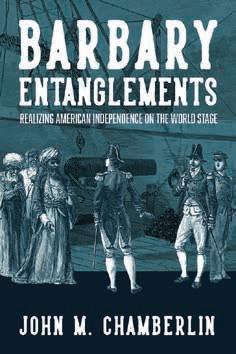
John “Garick” Chamberlin is Professor of Security Studies at the Air Command and Staff College of Air University.
DECEMBER
258 pages
6 x 9 1 map
$120.00 X Cloth
ISBN 978-0-8139-5409-7
$35.00 X Paper
ISBN 978-0-8139-5410-3
Ebook available
III
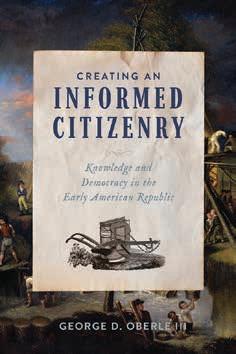
Creating an Informed Citizenry Knowledge and Democracy in the Early American Republic
Examining the early debates in the United States over how best to educate the constituents of the new nation
The Papers of George Washington
Revolutionary
War Series
v olume 36, 10 m arch –23 m ay 1782
GGeorge D. Oberle III is History
Librarian, Associate Term Professor, and the Director of the Center for Mason Legacies at George Mason University.
“In this important and timely book, we learn that from the earliest days of the republic, debates over knowledge were caught up in partisan conflict and that debates over knowledge reflected different ideas about democracy itself.” johann n. neem , Western Washington University, author of Democracy’s Schools
When the founding fathers of the United States inaugurated a system of government that was unprecedented in the modern world, they knew that a functioning democracy required an educated electorate capable of making rational decisions. But who would validate the information that influenced citizens’ opinions? By spotlighting various institutions of learning, George Oberle provides a comprehensive look at how knowledge was created, circulated, and consumed in the early American republic.
Many of the founders, including George Washington, initially favored the creation of a centralized national university to educate Americans from all backgrounds. Over the first half of the nineteenth century, however, politicians moved away from any notion of publicly educated laypeople generating useful knowledge. The federal government ultimately founded the Smithsonian Institution in Washington, DC, to be run by experts only. Oberle’s insightful analysis of the competing ideas over the nature of education offers food for thought as we continue to grapple with a rapidly evolving media landscape amid contested meanings of knowledge, expertise, and the obligations of citizenship.
en. George Washington anticipated his return to the army as spring approached in 1782. After arriving at his headquarters in Newburgh, N.Y., in late March, he soon learned that morale was at an all-time low due to continued lack of pay and resources. Washington feared that the army would not be prepared to take the field if called upon. An overhaul of the British ministry and a new parliamentary policy to end offensive operations against Continental forces complicated planning, and Washington hesitated to believe that peace was at hand. A failed prisoner-exchange negotiation diverted Washington’s attention, as did an extended ordeal later known as the Asgill Affair. Washington also swiftly quashed a suggestion that he declare himself king, addressed the John Parke Custis estate settlement, and intervened enthusiastically to launch the legal education of his nephew Bushrod Washington.
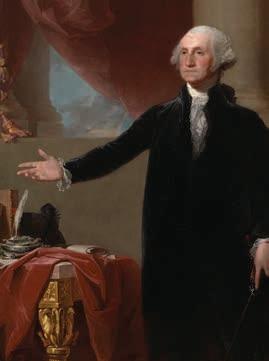
DECEMBER
800 pages
6 1/8 x 9 1/4
3 maps
$115.00 X Cloth
ISBN 978-0-8139-5234-5
Mapping the Constitution
The Cartographic History of the Ratification of the Constitution
Ending in mid-September 1787, the Constitutional Convention recommended that the state legislatures call conventions elected by the people to consider ratifying the newly proposed Constitution. The maps in this atlas show the division over ratification between Federalists and Antifederalists in all fourteen states.
John Kaminski is the founder and director of the Center for the Study of the American Constitution at the University of Wisconsin–Madison and director and coeditor of the Documentary History of the Ratification of the Constitution. Timothy D. Moore is deputy director for outreach, Sarah K. Danforth is an editorial assistant and coeditor, and Thomas H. Linley is deputy direc tor of publications at the CSAC.
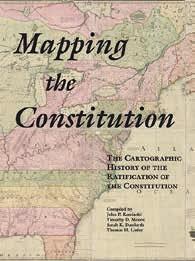
AVAILABLE
94 pages
8 1/2 x 11
18 maps
$40.00 X Paper
ISBN 979-8-9879445-6-1
COMPILED BY JOHN KAMINSKI, TIMOTHY D. MOORE, SARAH K. DANFORTH, AND THOMAS H. LINLEY
KELLY SWARTZ

The Dean Disordered
Jonathan Swift and Humoral Medicine
Understanding Jonathan Swift’s medical and literary life
“A thoughtful and thorough study. No one before has explained and contextualized Swift’s physical suffering, his symptoms, and his complaints about his symptoms in such an insightful way. As Child convincingly argues, to appreciate Swift’s experience with illness and understand how that experience is manifested in his writings requires returning ‘Swift to the humoral body in which he lived.’ A valuable contribution.” stephen karian , University of Missouri, author of Jonathan Swift in Print and Manuscript
Maxims and the Mind
Unknowing in the Early Novel from Bacon to Austen
Correcting the misunderstood role of maxims at the intersection of early science and literature
“A compelling new intervention in eighteenth-century studies. Swartz’s prose is consistently lucid, engaging, and fluent; her mode of argumentation is precise and subtle.” sarah tindal kareem , UCLA, author of Eighteenth-Century Fiction and the Reinvention of Wonder
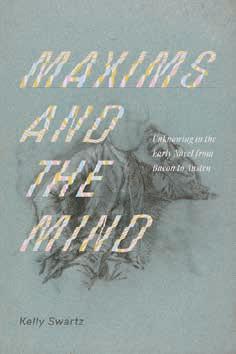
Paul William Child is Professor of English at Sam Houston State University.
The Dean Disordered bridges biography and literary criticism to examine the chronic afflictions suffered by the great Irish satirist Jonathan Swift, investigating not only how these ailments affected his day-to -day social life and ambitions but also how he represented them in his correspondence and imaginative writings. By historicizing Swift’s medical issues, Paul William Child returns the creator of the iconic character of Gulliver (a surgeon, notably) to the humoral body that he knew. Child situates Swift’s complaints within the theory of illness as an imbalance of fluid humors that had persisted since classical days, considering how Swift tried to make sense of and contain his own humors through narrative explanation, medical interventions and regimen, performances in the “sick role,” and imaginative representations. Rather than accepting modern diagnoses of Swift’s illnesses, The Dean Disordered reconstructs the medical culture of his time. The book opens a window into Swift’s experience of illness and prompts us to read both the man and his works anew.
Eighteenth-century novels are full of maxims—pithy statements of received wisdom such as “necessity is the mother of invention” or “neither a borrower nor a lender be.” Maxims are ancient rhetorical forms, celebrated by no less an influential figure than Aristotle as powerful tools of persuasion. Critics have generally explained away their ubiquitous presence in eighteenth-century novels as a vestige of a premodern form. As Kelly Swartz explains, however, their presence illustrates an important yet often overlooked aspect of the novel’s relationship with the early empirical sciences.
Kelly Swartz is Associate Professor of English at Adelphi University.
SEPTEMBER
294 pages
6 x 9
$120.00 X Cloth
ISBN 978-0-8139-5332-8
$39.50 X Paper
ISBN 978-0-8139-5333-5
Ebook available
Applying insights from Francis Bacon’s account of aphorizing as a method of scientific writing to works by Aphra Behn, Jonathan Swift, Samuel Richardson, and Jane Austen, Swartz shows how maxims functioned in a critical role that she calls “unknowing.” Such expressions, she argues, represented the not yet known as a way to inspire in readers a desire for ongoing, collective inquiry. Maxims also allowed these authors to invent unknowing fictional minds, at once attractive and vexing, ranging from the incoherent and banal to the unintelligibly rich. Maxims and the Mind thus offers new insight into the nature of the relationship between science and the early novel, emphasizing their shared interest in the representation of knowledge still awaiting discovery.
NOVEMBER
204 pages
6 x 9
$110.00 X Cloth
ISBN 978-0-8139-5412-7
$32.50 X Paper
ISBN 978-0-8139-5413-4
Ebook available
PAUL WILLIAM CHILD
LYDIA MURDOCH JOEL DUNCAN
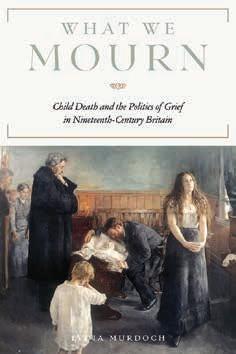
What We Mourn
Child Death and the Politics of Grief in Nineteenth-Century Britain
How a new culture of bereavement changed the relationship of the Victorian state to its most vulnerable subjects
“A beautiful, smart book that sits elegantly at the intersection of literary criticism and history. The writing is lucid and the analysis razor sharp.” seth koven , Rutgers University, author of The Match Girl and the Heiress
Poetic Drive
American Poetry in the Age of Automobility
How American poets have explored driving, in all its facets
“An admirable and illuminating work of scholarship and a fascinating contribution to various critical and theoretical discourses.” brian glavey , University of South Carolina, author of The Wallflower Avant-Garde: Modernism, Sexuality, and Queer Ekphrasis
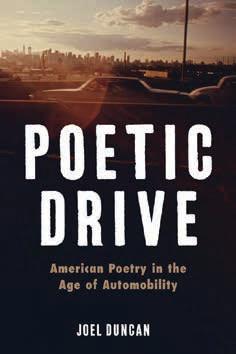
Lydia Murdoch is Professor of History at Vassar College and the author of Daily Life of Victorian Women.
When the Tory Member of Parliament Michael Sadler argued in 1832 for state intervention on behalf of Britain’s dying child factory workers, he elicited smirks and ridicule from his Liberal adversaries—a response that would have been unimaginable by the century’s end. What We Mourn traces the changing understandings of child death within British, imperial, and transatlantic contexts and reveals the importance of youth and emotion to constructions of the modern state.
As childhood took on new meanings over the course of the long nineteenth century, public mourning for the premature deaths of children emerged as a way of asserting and even redefining British rights and citizenship. Factory hands and abolitionists, sanitation reformers and suffragists democratized and politicized their grief as they called upon the state to recognize their lives as part of a new, reimagined political order. As Lydia Murdoch shows, carrying their own and others’ private grief into the public sphere—with petitions and marches, public lectures and poetry—allowed marginalized members of society to assert their claim to rights. What We Mourn explores both the power and the limitations of a new politics founded on grief and the protection of child life.
Whither goest thou, America,” asked Jack Kerouac in On the Road, “in thy shiny car in the night?” For American poets, the act of driving has always harbored a critical dichotomy. It can express the thrill and the freedom of the open road, but it can also foster fears of ecological catastrophe, crashes, and police violence. In Poetic Drive, Joel Duncan examines the writings and experimental film collaborations of William Carlos Williams, Charles Olson, Frank O’Hara, Eileen Myles, and Claudia Rankine to show that while poets have consistently inhabited the driver’s seat as a vehicle for self-possession, they have also reckoned with the social exclusions and environmental destruction central to American automobility. These poets have at times left their cars behind as stalled junk, or simply stopped driving them, mourning the forms of violence they encountered behind the wheel.
While previous studies have considered road novels and films, Poetic Drive is the first book to explore how American poets have harnessed the contradictory nature of automobility in crafting new work. By tracking poets’ vexed engagements with automobility over more than a century, Duncan offers a unique contribution to ecopoetics and petrocultures scholarship that expands our understanding of the place of driving in American literature and culture.
Joel Duncan is a writer and educator living in Gothenburg, Sweden. He holds a PhD in English from the University of Notre Dame.
$120.00 X Cloth
ISBN 978-0-8139-5381-6
$35.00 X Paper
ISBN 978-0-8139-5382-3
Ebook available
DECEMBER
204 pages
6 x 9
6 b&w illustrations
$115.00 X Cloth
ISBN 978-0-8139-5402-8
$35.00 X Paper
ISBN 978-0-8139-5403-5
Ebook available
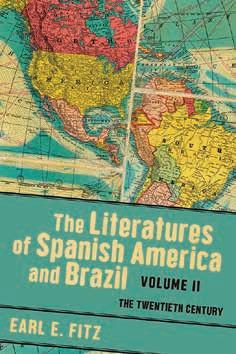
The Literatures of Spanish America and Brazil
Volume 2, The Twentieth Century
Charting the twentieth-century course of the literature of the Americas
Devout and Defiant
How Pilgrims Shaped the Franco-German Borderlands in the Age of Revolutions
How Catholic pilgrims in an era of revolution challenged state authority and redefined the practice of their faith
Earl E. Fitz is Professor of Portuguese, Spanish, and Comparative Literature at Vanderbilt University and the author of The Literatures of Spanish America and Brazil: Volume 1, From Their Origins through the Nineteenth Century.
“A foundational new book in Brazilian and Latin American literary studies. Part manifesto, part memoir, part literary history, and crucially a defense of literature and language learning that resonates well with his diverse, expansive subject as well as with the zeitgeist of the times, Fitz’s multigenre book will inspire readers from all walks.” adam joseph shellhorse , Temple University, author of Anti-Literature: The Politics and Limits of Representation in Modern Brazil and Argentina
TAUGUST
312 pages
6 x 9
$120.00 X Cloth
ISBN 978-0-8139-5329-8
$39.50 X Paper
ISBN 978-0-8139-5330-4
Ebook available
he second volume of Earl E. Fitz’s magisterial survey of the field, The Literatures of Spanish America and Brazil: The Twentieth Century analyzes Spanish- and Portuguese-language writing throughout South and Central America as well as in the United States and Canada, where it expanded and flourished over the course of the century. Fitz argues that Spanish American and Brazilian literatures should be treated as two sides of the same coin, together forging a hemispheric identity as new literary aesthetics and political crises swept through the Americas. Fitz takes readers on a comparative journey, analyzing writers such as Octavio Paz and Juan Rulfo from Mexico, Julia de Burgos and Luis Palés Matos from Puerto Rico, Jorge Luis Borges and Victoria Ocampo from Argentina, and Mário de Andrade and Patrícia Galvão from Brazil, among many others, to inspire a more thoroughly integrated understanding of the literature of the Americas.
“An original and substantial contribution based on archival work of truly impressive depth and breadth. Harrer explains in lucid prose why Catholicism in general, and pilgrimages in particular, retained—and expanded—their appeal during a period of Enlightenment and revolution, despite the hostility of the authorities.” tim blanning , University of Cambridge, editor of The Oxford History of Modern Europe
In the days of the French Revolution, as zealous government officials sought to sweep away the vestiges of a less enlightened age, they made a concerted effort to clamp down on religious “superstition” and to fix modern territorial boundaries. Catholic pilgrims on the western edge of German-speaking Europe, however, refused to let worldly barriers stand in the way of their devotional practices. As Kilian Harrer reveals in this groundbreaking book, pilgrimage became a form of transgressive devotion that spurred religious renewal.
By the hundreds of thousands, pilgrims exposed the limits of state authority as they traveled to shrines and holy sites across the borderlands that stretched from Luxembourg in the north to Alsace and Switzerland in the south. These Catholics evaded passport controls, crossed provocatively into Protestant territories, and went abroad to visit shrines beyond the reach of anticlerical officials. Pilgrims and pilgrimage organizers reshaped the politics of religion by grappling with shifting borders, dramatic regime change, and police repression. In the end, they reoriented Catholicism itself as they boldly confronted the state-led policing of borders and worship.
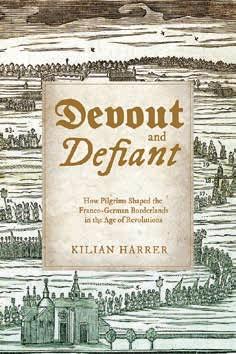
Kilian Harrer is a Postdoctoral Fellow at the Leibniz Institute of European History in Mainz, Germany.
SEPTEMBER
294 pages
6 x 9
4 maps, 2 tables
$120.00 X Cloth
ISBN 978-0-8139-5357-1
$39.50 X Paper
ISBN 978-0-8139-5358-8
Ebook available
KILIAN HARRER
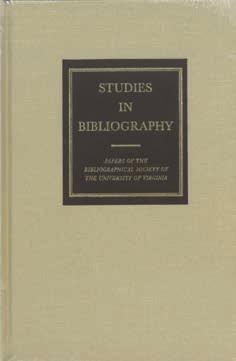
David L. Vander Meulen is Professor of English at the University of Virginia.
Studies in Bibliography
Volume 61
The sixty-first volume of Studies in Bibliography continues its tradition of presenting a wide range of articles by international scholars on bibliography, textual criticism, and other aspects of the study of books.
The volume opens with a bibliographical assessment of the contributions to the Anglo-American book world of the bookseller, scholar, collector, and writer John Carter, accompanied by a handlist of the nearly fifteen hundred items Carter is known to have published. Other major essays include John Bidwell’s analysis of the claim that a recently discovered manuscript is an early copy of the Declaration of Independence, James McLaverty’s study of the illustrations of Alexander Pope’s Works of 1735, Barbara Heritage’s detection of stages of composition in the manuscript of Charlotte Brontë’s Shirley, and James L. W. West III’s recovery of the authors’ punctuation in the endings of novels by Fitzgerald, Hemingway, and Faulkner.
The Row House in Washington, DC
A History
Winner of the Vernacular Architecture Forum’s Abbott Lowell Cummings Award
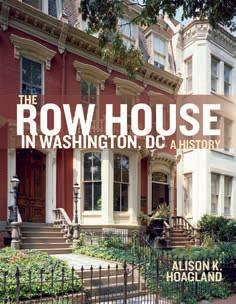
“An innovative, engaging, and insightful study that fills a conspicuous void.” richard longstreth , George Washington University, author of Looking Beyond the Icons: Midcentury Architecture, Landscape, and Urbanism
“Hoagland has crafted an exemplary domestic and cultural history of Washington, DC. . . . In Hoagland’s skillful hands, house-type analysis becomes a vehicle for weaving an impressively comprehensive, yet always human-scaled historical-social analysis of Washington’s complex domestic history.”— 2024 vernacular architecture forum cummings award jury
In this award-winning book, Alison Hoagland turns the lucid prose and keen analytical skill that characterize all her scholarship to the subject of the Washington row house. Row houses have long been an important component of the housing stock of many major American cities, predominantly sheltering the middle classes. In Washington, with its plethora of government workers, they are the dominant style. Hoagland identifies six principal row house types and documents their wide-ranging impact, demonstrating at once the distinctive character of the Washington row house and the many similarities it shares with row houses in other mid-Atlantic cities.
Alison K. Hoagland, Professor Emerita in History and Historic Preservation at Michigan Technological University, is the author of The Log Cabin: An American Icon.
AVAILABLE
364 pages
6 1/8 x 9 1/4
73 b&w illustrations
$70.00 X Cloth
ISBN 978-0-8139-5454-7
JULY
278 pages
7 x 9
120 b&w illustrations
$29.50 X Paper
ISBN 978-0-8139-5447-9
Ebook available
Cloth edition published in 2023
CYNTHIA A. KIERNER
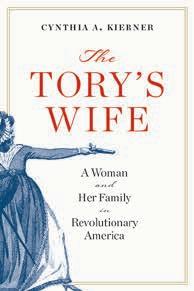
DECEMBER
224 pages
6 x 9
8 b&w illustrations, 4 maps
$21.95 T Paper
ISBN 978-0-8139-5435-6
Ebook available
Cloth edition published in 2023
The Tory’s Wife A Woman and Her Family in Revolutionary America
Winner of the 2024 Julia Cherry Spruill Prize, Finalist for the 2024 George Washington Prize
This engrossing book tells the story of Jane Welborn Spurgin, a patriot who welcomed General Nathanael Greene to her home and aided Continental forces while her loyalist husband was fighting for the king as an officer in the Tory militia. Kierner shows how the Revolution not only toppled long-established political hierarchies but also strained family ties and drew women into the public sphere to claim both citizenship and rights.
Cynthia A. Kierner is Professor of History at George Mason University and the author of Scandal at Bizarre: Rumor and Reputation in Jefferson’s America
THE REVOLUTIONARY AGE
LAWRENCE B. A. HATTER
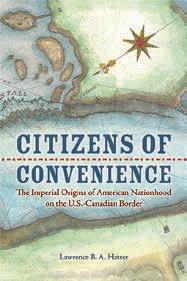
JUNE
288 pages
6 x 9
6 b&w illustrations, 2 maps
$29.50 X Paper
ISBN 978-0-8139-5363-2
Ebook available
Cloth edition published in 2017
Citizens of Convenience
The Imperial Origins of American Nationhood on the US-Canadian Border
Winner of the Walker Cowen Memorial Prize
“Both nicely focused and impressively grand.” journal of american history
The difficulty of distinguishing American citizens from British subjects on the USCanada border in the early years after independence posed a significant challenge to the United States’ claim that it formed a separate and unique nation. Citizens of Convenience shows how the dynamics at the border helped to define the American people as a distinct nation within the Revolutionary Atlantic world and stake out the United States’ imperial domain in North America.
Lawrence B. A. Hatter is Associate Professor of History at Washington State University.
K. LITAKER
Bedazzled Saints
Catacomb Relics in Early Modern Bavaria
Winner of the Sixteenth Century Society Gerald Strauss Book Award
“A dizzying must-read . . . deeply learned and extremely compelling.” english historical review
Bedazzled Saints chronicles the transfer, distribution, and display of nearly four hundred “holy bodies”—skeletons of ancient Christian martyrs painstakingly ornamented with jewels and fine clothing—in Bavaria from 1590 to 1803. Litaker challenges the dominant narrative of the Bavarian Catholic Reformation as a top-down process and provides new insights into the role relics and their innovative presentation played in the development of Catholic identity in early modern Germany.
Noria K. Litaker is Assistant Professor of History at the University of Nevada, Las Vegas.
STUDIES IN EARLY MODERN GERMAN HISTORY
Freedom Has a Face
Race, Identity, and Community in Jefferson’s Virginia
“A riveting, unsurpassed portrait of the tangled lives of individual free people of color, slaves, and whites in Jefferson’s Virginia neighborhood during the post-Revolutionary decades.
Drawn from unprecedented, exhaustive, and pathbreaking research in records that lay ignored and undeciphered, Freedom Has a Face traces—much like a Dickens novel—the startling connections among obscure people who, in the aggregate, reveal a world all too real but seldom appreciated by modern scholars. A triumph of the historian’s craft.” michael
p . johnson , Johns Hopkins University, author of Black Masters: A Free Family of Color in the Old South
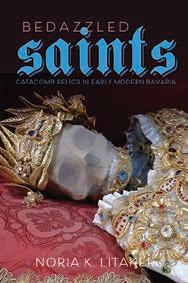
JUNE
300 pages
6 x 9
52 b&w illustrations, 4 maps, 2 tables
$29.50 X Paper
ISBN 978-0-8139-5432-5
Ebook available
Cloth edition published in 2023
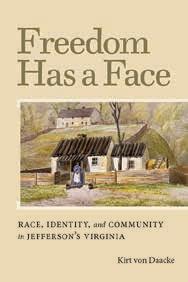
in PAPER
Kirt von Daacke is Research Professor of History at the University of Virginia and the coeditor of After Emancipation: Racism and Resistance at the University of Virginia.
AVAILABLE
288 pages
6 x 9
1 map, 2 charts, 1 table
$35.00 X Paper
ISBN 978-0-8139-5360-1
Ebook available
Cloth edition published in 2012
KIRT VON DAACKE
NORIA
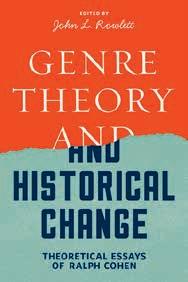
JULY
432 pages
6 x 9
$35.00 X Paper
ISBN 978-0-8139-5434-9
Ebook available
Cloth edition published in 2017
Genre Theory and Historical Change Theoretical Essays of Ralph Cohen
“In this valuable collection, one sees not only where we have been, and how we got there, but also where we have arrived, and why.” donald r . wehrs , The Scriblerian and the Kit-Cats
Ralph Cohen was highly regarded as the visionary founding editor of New Literary History, but his own theoretical essays appeared in such a scattering of publications that their conceptual originality, underlying coherence, and range of application have not been readily apparent. This selection of twenty essays offers a synthesis of Cohen’s vital work, in which he conceptualized and developed a compelling, innovative theory of genre that promotes a systematic study of historical change, offering rewarding insights for twenty-first-century scholars.
The late Ralph Cohen was emeritus Professor of English at the University of Virginia and founder of New Literary History. John L. Rowlett is the former Program Director for the Commonwealth Center for Literary and Cultural Change.
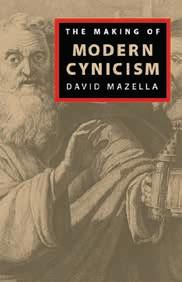
JULY
318 pages
6 1/8 x 9 1/4
$29.50 X Paper
ISBN 978-0-8139-5433-2
Cloth edition published in 2007
The Making of Modern Cynicism
“A tour de force of scholarship and an argument whose complex components work like clockwork to illuminate the changing facets of cynicism.” the eighteenth century : theory and interpretation
Once describing a life of exile, self-denial, physical rigor, and mastery of one’s desires, cynicism now describes a life of political quietism, passivity, and moral indifference. How did ancient Cynic philosophy come to provide a name for its modern, unphilosophical counterpart, and what events caused such a dramatic reversal of cynicism’s former meanings? Mazella traces the concept of cynicism from its origins as a philosophical way of life in Greek antiquity into the nineteenth century, when it took its distinctively modern form as a variety of disenchantment, disbelief, or distrust.
ORDERS & CUSTOMER SERVICE
University of Virginia Press
c/o Longleaf Services, Inc. 116 S. Boundary St. Chapel Hill, NC 27514-3808
(SAN# 203-3151)
Phone: 800-848-6224
Fax: 800-272-6817
Email: orders@longleafservices.org customerservice@longleafservices.org
T = TRADE DISCOUNT
S = SHORT DISCOUNT
X = TEXT DISCOUNT
Prices and discounts are subject to change without notice.
ELECTRONIC ORDERING IS AVAILABLE THROUGH PUBNET. SAN NUMBER: 203-3151. Prior to submitting your first order, please call the Longleaf customer service department (800-848-6224) to provide your SAN number and verify your billing and shipping information.
ORDERS IN CANADA
University of Toronto Press Distribution 5201 Dufferin St. Toronto, ON M3H 5T8
Canada
Phone: 800-565-9523
Fax: 800-221-9985
Email: utpbooks@utpress.utoronto.ca www.utpdistribution.com
RETURN POLICY: Permission to return overstock from returnable accounts is not required. Books must be returned within 18 months of the invoice date and be currently in print as listed on the UVA Press website. Books must be clean, salable copies without any signs of damage. Full credit allowed if customer supplies original invoice number; otherwise, maximum discount applies.
RETURN BOOKS TO: Chambersburg DC Returns UVA Press Returns c/o Distribution Solutions 1250 Ingram Drive Chambersburg, PA 17202
(SAN# 631-8681)
Longleaf Services will not accept liability for lost/damaged returns in transit. Return claims must be submitted within 30 days of shipment in writing to Longleaf Services, Inc., 116 S. Boundary St., Chapel Hill, NC 27514-3808, or via email to credit@longleafservices.org. Claims must include a proof of delivery and a packing list with weights.
ORDERS FROM INDIVIDUALS must be accompanied by remittances, plus $6.00 postage and handling for the first book ordered and $1.00 for each additional book. Customers in AZ, CO, CT, DC, IA, IN, KS, KY, MA, MD, MN, NC, NE, NJ, NM, NV, NY, OH, OK, PA, SC, SD, TN, TX, UT, VA, WA, WI, and WY must include appropriate sales tax. All sales must be in US funds.
DESK COPIES may be requested if a book has been adopted and an order has been placed or will be forthcoming. Desk copies are free of charge.
EXAMINATION COPIES of most titles are available to instructors considering adoption for their courses. Unless only a cloth edition exists, a paperback edition of the requested title will be sent.
TO RECEIVE DESK OR EXAMINATION COPIES please complete and submit the appropriate form at http://www.upress. virginia.edu under “For Instructors.” Contact Jason Coleman, Sales and Marketing Director, jcoleman@virginia.edu, with any questions.
SALES REPRESENTATIVES
THE STATE OF VIRGINIA UNIVERSITY OF VIRGINIA PRESS JASON COLEMAN Sales and Marketing Director jcoleman@virginia.edu P.O. Box 400318 Charlottesville, VA 22904-4318 434-924-1450
COLUMBIA UNIVERSITY PRESS SALES CONSORTIUM MANAGER AND SOUTH CATHERINE HOBBS 804-690-8529 / Fax 434-589-3411 ch2714@columbia.edu
NORTHEAST CONOR BROUGHAN 917-826-7676 cb2476@columbia.edu
MIDWEST KEVIN KURTZ 773-316-1116 / Fax 773-489-2941 kk2841@columbia.edu
WEST WILLIAM GAWRONSKI 310-488-9059 / Fax 310-832-4717 wgawronski@earthlink.net
HAWAI‘I, UNITED KINGDOM, EUROPE, ASIA, OCEANIA, PACIFIC ISLANDS, MIDDLE EAST, AFRICA MARE NOSTRUM GROUP 39 East Parade Harrogate North Yorkshire HG1 5LQ United Kingdom Trade orders and inquiries: +44 (0)1243 843291 trade@wiley.com
CANADA
GENERAL INQUIRIES
UNIVERSITY OF VIRGINIA PRESS P.O. Box 400318 Charlottesville, VA 22904-4318 434-924-3468
vapress@virginia.edu
CALL U.S. TOLL-FREE 800-831-3406 TOLL-FREE FAX 877-288-6400
David Mazella is Associate Professor of English at the University of Houston.
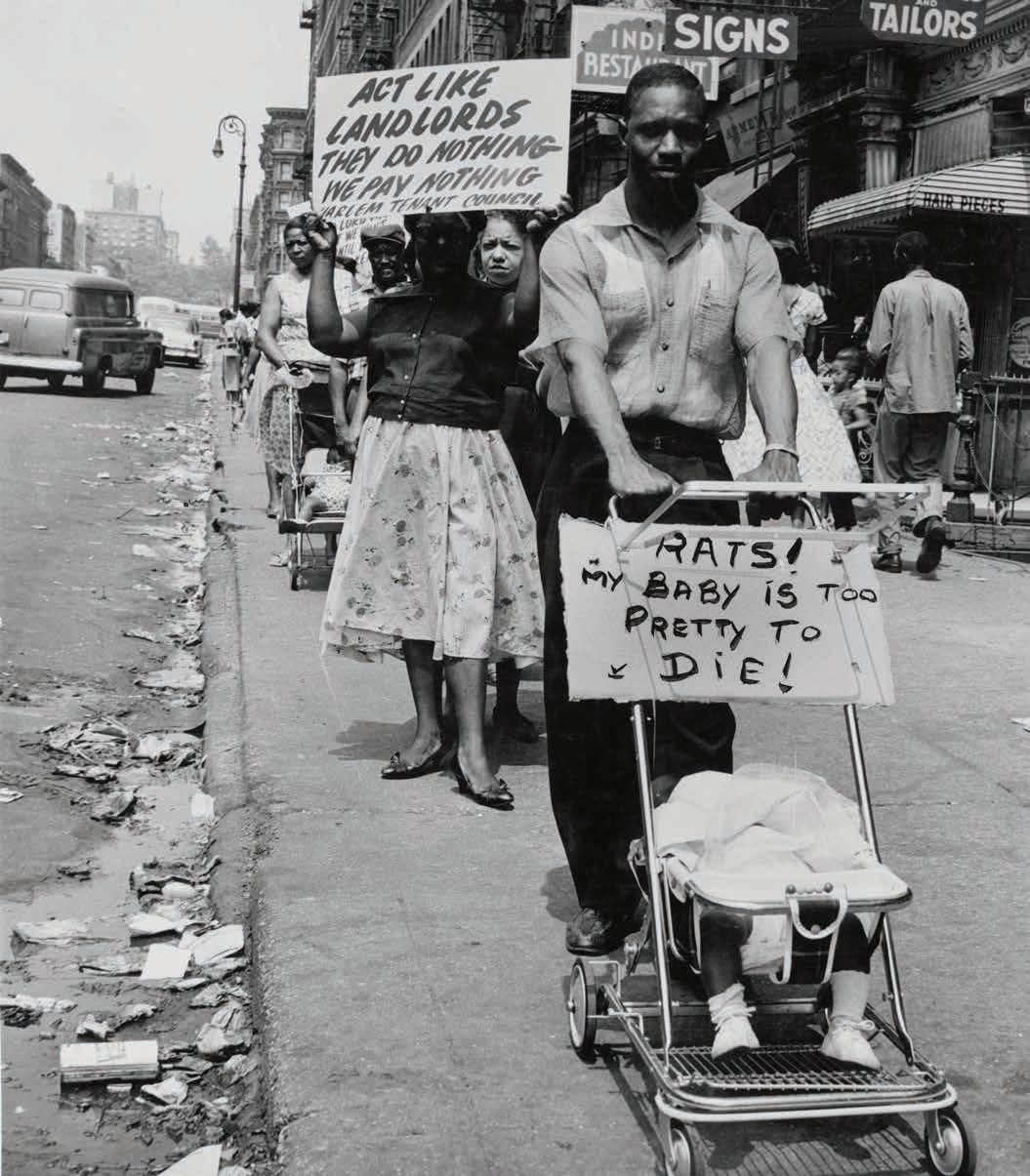
AMPERSAND, INC. Head Office 321 Carlaw St., Suite 213 Toronto, ON M4M 2S1 Canada Toll-free Phone: 866-736-5620 / Fax: 866-849-3819
DAVID MAZELLA
RALPH COHEN, EDITED BY JOHN ROWLETT
U.S. POSTAGE PAID
PERMIT N° 155 CHARLOTTESVILLE, VA
WWW.UPRESS.VIRGINIA.EDU
DIGITAL ROTUNDA.UPRESS.VIRGINIA.EDU
FACEBOOK WWW.FACEBOOK.COM/UVAPRESS
TWITTER TWITTER.COM/UVAPRESS
VIRGINIA OPEN OPEN.UPRESS.VIRGINIA.EDU
